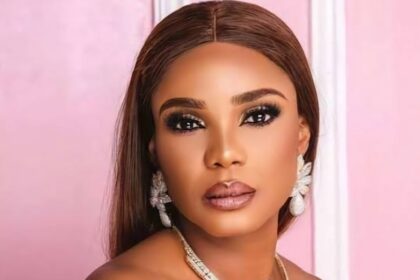The frills of fortune, treats of conceit and the law of power may be accumulated without end in royal circuits. A taste for them increases as it they are gratified, particularly within the domain of a covetous monarch. But it takes a sovereign of unusual virtue and zest for the good of all, to preside over a glorious kingdom. Such human element possesses the rare capacity to scorn circuits of reason that heralds virtue as morose, compassion, a luxury and good governance, a frivolous enterprise.
Monarchs live a charmed life. They are courted by politicians and the most eminent sections of the ruling class. The latter understands their worth and see them as a bridge to building goodwill with several segments of the country’s indigenous communities. Besides patronage by the country’s major power blocs, the average monarch commands respect and affection from the female folk.
Few female hearts can indeed withstand or scorn the attractions of the throne and a flamboyant monarch. Most opportune and is the paramount monarch with a smile that melts all hearts, the airs that awes rebellion, the frown that rebels dread, the hand that scatters fairy wealth, bestows titles, honour, power, and the head circled with a precious diadem. Across the world, especially in countries where the monarchy is practised, the jury is still out on their relevance and influence or otherwise in the 21st Century. There has been a sustained debate about the relevance of monarchies in the modern world. Many suggest that they should be scrapped because they amount to unnecessary waste and extravagance of power, while others maintain that more monarchies should be created and sustained as rich bastions of heritage and tradition.
In Nigeria, the argument subsists in intriguing forms.
Whatever the tenor of opinion held by individual citizenry, none can dispute the glamour and pride heralded in the wake and rituals of the country’s most prominent monarchies. Here are some of the country’s young eminent monarchs, who still maintain their relevance and invaluableness in a rapidly changing world. The Ooni of Ife is no mere mortal. The occupier is regarded as belonging to the pantheon of deities that rules the universe; their representative here on earth; and a direct descendant of Oduduwa, the progenitor of the Yoruba race and the King of Ile Ife (Osun state), regarded as the cradle of creation and the centre of the Yoruba polity. As the interface between the people and the gods, the Ooni has the mandate of the forbears of the Yoruba race to oversee the affairs of mankind in Yorubaland and elsewhere, while also overseeing 201 out of the 401 relevant deities the gods have deployed to the earth. In effect, he has the power to wipe out a whole race.
This is the throne successful businessman, Adeyeye Enitan Ogunwusi, ascended to in 2015 after the demise of the previous occupier, Oba Okunade Sijuwade. However, as a successful young man in tune with modern times but vested with the powers and responsibilities of an all-powerful monarch, the Ooni is conscious of the fact that he is in a rapidly developing world with the correspondingly rapid atrophy of the essence of monarchy and the increasing menace of social media. His Royal Majesty, Oba Saheed Ademola Elegushi (Kusenla III), the Elegushi of Ikateland and the youngest Oba in Yorubaland. Over the years, the profile of Oba Elegushi, who is regarded as Nigeria’s most effervescent royal father, has been on the rise. He has emerged as one of the most influential monarchs in the country as well. He is reported to have strongly influenced the emergence of many other prominent obas in Yorubaland. And the Oluwo of Iwoland, Oba Abdul-Rasheed Adewale Akanbi, Telu I. He is highly controversial.



